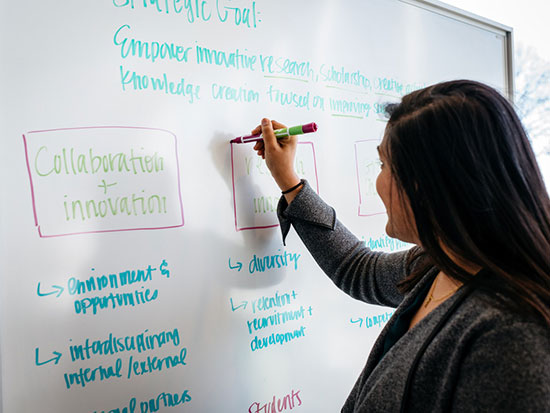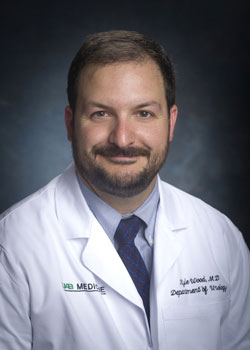By Briana Bryant
 The Bill L. Harbert Institute for Innovation and Entrepreneurship has invested more than $300,000 in grant funding from the U.S. Economic Development Administration’s Regional Innovation Strategies program to support proof-of-concept and early-stage product development at UAB.
The Bill L. Harbert Institute for Innovation and Entrepreneurship has invested more than $300,000 in grant funding from the U.S. Economic Development Administration’s Regional Innovation Strategies program to support proof-of-concept and early-stage product development at UAB.
The Anvil Student Startup Bootcamp has facilitated the launch of 22 new student ventures, which together support 16 local full-time jobs and have generated $2.1 million in sales, raised $1.1 million in capital and garnered an additional $1.29 million from grants and pitch competitions.
Earlier this year, the Harbert Institute solicited applications from faculty, staff and student innovators across campus for funding awards from $10,000 to $50,000. The application process required researchers to submit a proposed product-development or business plan. Applicants seeking more than $10,000 also presented a pitch deck to demonstrate project elements such as clinical readiness, potential for regulatory approval, intellectual property protection and project sustainability.
| “We’re working to address a critical period in the development process between research and commercialization. Injecting capital into research projects with commercial potential at this early stage helps bridge the valley of death and advance UAB technologies through the pipeline.” |
“We’re working to address a critical period in the development process between research and commercialization,” said Kathy Nugent, Ph.D., executive director of the Harbert Institute. “Injecting capital into research projects with commercial potential at this early stage helps bridge the valley of death” that can swallow projects that fail to attract funding “and advance UAB technologies through the pipeline,” Nugent said.
 Kyle Wood, M.D., is developing an ergonomic assistant for surgeons during endoscopic procedures.The Harbert Institute received applications from investigators across campus and funded 11 early-stage projects with high commercial potential. These projects represent the schools of Medicine, Health Professions and Engineering, the College of Arts and Sciences and UAB Athletics.
Kyle Wood, M.D., is developing an ergonomic assistant for surgeons during endoscopic procedures.The Harbert Institute received applications from investigators across campus and funded 11 early-stage projects with high commercial potential. These projects represent the schools of Medicine, Health Professions and Engineering, the College of Arts and Sciences and UAB Athletics.
Regional Innovation Strategies funding through the Harbert Institute will in most cases be used to develop prototypes or enable further design and testing. Kyle Wood, M.D., assistant professor in the Department of Urology, is working with co-inventor Andres Morales, Ph.D., to develop ScopeAssist. The device is designed to protect expensive digital, video or fiberoptic endoscopes while also improving maneuverability and improved ergonomics for surgeons.
“Thanks to the grant support, ScopeAssist can be taken from idea to a fully functional device,” Wood said. “My hope is the device will be the ergonomic assistant that is so greatly needed and allow for improved care for our patients during endoscopic procedures.”
